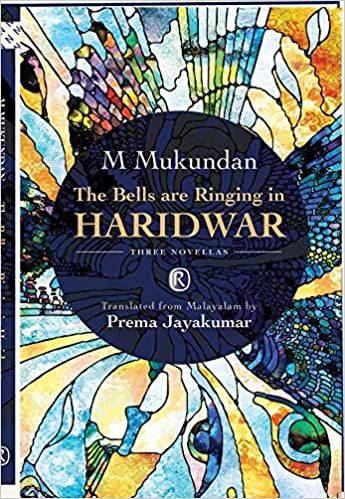Mukundan’s latest offering in translation is a collection of three novellas—the eponymous long novella and two short ones. But these are not new stories; on the contrary they are pretty old ones written in the late 1960s and early 70s. They have been introduced to the English reading public some fifty years later in an interesting translation by Prema Jayakumar. The book indeed raises the usual questions of the time gap between the original and the translation that so many scholars of Translation Studies ask as also the reasons for publishing these stories now. Does it also indicate that translated stories are now accepted more readily by the reading public as compared to half a century ago? Have the themes around which the author weaves his tales become relevant again? Is it the extension that breathes an afterlife into earlier works? Is translation into English the only path to obvious visibility that all writers need?
In The Bells are Ringing in Haridwar, Mukundan addresses some of these queries and demonstrates his strong connection with issues of language and translation. The protagonist Ramesh who is a translator for a foreign gentleman Senor Herozi in Delhi marvels, ‘The Sahib […] wrote everything in Spanish. If the translator was absent from the office the white man did not have an existence. Ramesh was his tongue. The white man’s tongue was red like a dog’s. Was Ramesh that tongue? […] a prisoner in the mouth of Senor Herozi…’ (p. 5).


256281 891278Which is some inspirational stuff. Never knew that opinions may possibly be this varied. Thank you for all of the enthusiasm to supply such valuable details here. 701335
598511 380536I was reading some of your content material on this web site and I believe this internet web site is really informative! Keep putting up. 562064
Cách viết của bạn rất gần gũi và dễ hiểu.
634807 825823Nice one, there is actually some great facts on this post some of my subscribers may discover this useful, will send them a link, several thanks. 963861